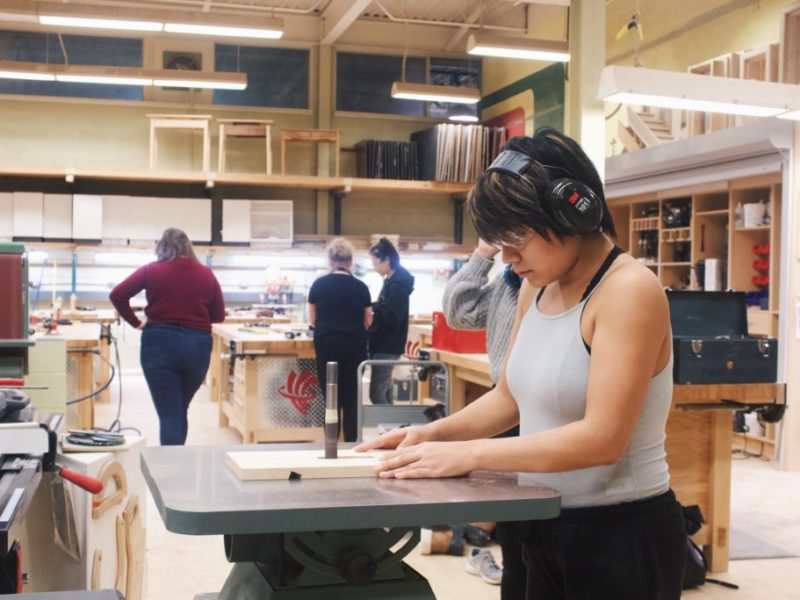
Project INSIGHTS Report
Virtualization of experiential learning platforms and their pedagogical models
Executive Summary
Physical distancing requirements during the pandemic meant classrooms went online. However, for experiential learning or other programs that required practical, often in-person, experience and assessment as part of the certification process, other options had to be explored and quickly.
In response to this challenge, the British Columbia Institute of Technology (BCIT) tested the virtualization of training by building a platform that provided learners, instructors and researchers with remote access to a physical training environment. Virtualization is a well-established computing framework where users can access physical resources over a cybersecure network.
The principal aim of this project was to shift experiential learning to a virtual platform for those training to work in Canada’s critical utilities infrastructure.
Using advanced virtualization tools and technologies, integrated with real-field devices and systems, trainees were able to get vocational training remotely through a virtualized experiential learning platform (VELP).
Although learning has largely returned to the classroom, remote access to practical and experiential learning has the potential to expand access to training for remote learners. This could potentially benefit both remote learners and sectors where there is a regional demand for or even a shortage of labour.
Through virtualization learning, Canada’s utility infrastructure sectors can be better supported with a steady stream of well-trained people for this work from across Canada.
DATE PUBLISHED
July 2023
Partners
British Columbia Institute of Technology, Siemens Canada and the BC Ministry of Post-secondary Education
Locations
Pan-Canadian
INvestment
$1,569,460
Key Insight #1
Project designers used technology to plan, outline and develop virtualized experiential learning platforms, allowing learners and instructors to remotely access physical equipment.
Key Insight #2
The project migrated the command-and-control aspects of their physical assets to cyberspace and provided safe and secure access for trainees to learn-by-doing virtually.
Key Insight #3
This project technology can be adapted for remote learning in other sectors that require physical equipment for training and assessment purposes.

 The Issue
The Issue
The onset of the pandemic and the need for physical distancing forced many post-secondary institutions to move their academic and training programs online. While some subjects lend themselves well to online or remote instruction, vocational training based on experiential learning was particularly heavily affected and challenged by this pivot to virtual learning.
In particular, industries that require hands-on training and collaboration with interdisciplinary teams suffered extensively from pandemic-related restrictions.
Critical infrastructure cybersecurity is an example of such a sector in which the workforce needs to be trained in teams, on utility-grade assets and systems, and learn hands-on operation.
In recent years, critical digital infrastructure in Canada has been facing increasing threats from well-organized and sophisticated cyberattacks. The utility industry is in dire need of on-the-job, hands-on training that addresses skill gaps due to the continually evolving nature of cyber threats and fast-paced progress of new technologies.

 What We’re Investigating
What We’re Investigating
The principal aim of this project was to shift experiential learning to a virtual platform for those training to work in Canada’s critical utilities infrastructure.
Using advanced virtualization tools and technologies, integrated with real-field devices and systems, trainees are able to get vocational training remotely through a virtualized experiential learning platform (VELP).
The platform facilitates hands-on training in critical energy infrastructure areas, such as utility systems, smart microgrids and advanced digital substations, as well as in cybersecurity infrastructure.
Through design and testing, the project investigated how to migrate control-and-command signals into a secure cyberspace effectively, reliably and securely. It also provided insights into how to conduct remote experiential learning and teaching on topics including digital twins, real-time co-simulation, and cloud-based applications for monitoring, analysis and cybersecurity studies.
The project investigated methods of integrating diverse tools and technologies, bringing them into one place. It considered how to allow users to work together as a team even though team members may be in different physical locations.
 What We’re Learning
What We’re Learning
The VELP provided trainees with experiential learning by virtualizing the learning experience and in conjunction with appropriate teaching methods ensured trainees gained the same level of understanding and experience as in-person learning. This innovative solution virtualizes access to assets, while keeping systems in their physical form, allowing trainees to access these physical platforms remotely.
The project team tested a number of the technical aspects of the VELP including reliable communication between various assets and systems in physical and cyberspace using standard communication protocols, and effectively integrating different virtualization tools and technologies.
BCIT was also able to design the project with the flexibility to meet a variety of training needs while keeping such experiential learning platforms cybersecure.
BCIT held two sessions with trainees where the majority applauded the VELP and its provision of real-world experiences that mimicked likely workplace scenarios.
 Why It Matters
Why It Matters
New technologies such as the Internet of Things (IoT), artificial intelligence and virtualization are increasing in complexity. The learnings from this project open the door to the development of virtualized experiential learning in other key sectors to Canada’s economy and ability to engage trainees from all over Canada.
By 2030, Clean Energy Canada estimates there will be more than 600,000 jobs in the clean energy industry. With the growing demand for clean economy jobs in Canada, it is imperative for policy-makers and funders to find ways to facilitate and expand training opportunities through virtualized experiential learning platforms. Supporting such projects through adequate funding and updated policies could facilitate Canada’s goal to move toward a sustainable economy.
Although learning has largely returned to the classroom, remote access to practical and experiential learning has the potential to expand access to training for remote learners, potentially benefiting both remote learners and sectors where there is a shortage of labour.
 What’s Next
What’s Next
BCIT has and will continue to conduct knowledge mobilization activities to share how project learnings can be used by other stakeholders across Canada to develop tailored virtual learning offerings for Canada’s infrastructure sector. This includes lectures, seminars, conference presentations, webinars and peer-reviewed journal articles.
VELP itself is being used in two microcredential courses at BCIT: Fundamentals of Substation Automation Systems and Critical Infrastructure Cybersecurity.




